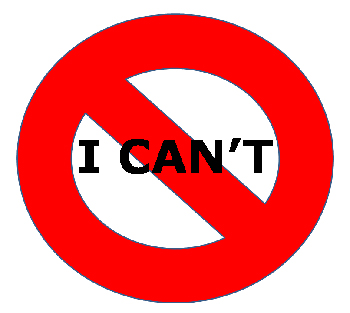 It’s been said that you can tell how much money someone makes from the first 3 minutes of speaking with them. How’s that possible? It’s all in the language and words they use.
It’s been said that you can tell how much money someone makes from the first 3 minutes of speaking with them. How’s that possible? It’s all in the language and words they use.
I know it sounds odd but how people speak does reveal a lot about who they are and how well they do in life. Most likely the guy cussing all over the place is also angry at other parts of his life and most likely not very successful in any area of his life.
Not only does language say a lot about you but it also informs your cells how to respond also. For those of you who are familiar with the work of Dr. Bruce Lipton or Dr. Marsuro Emoto you’ll understand how our physical biology can actually change as a result of how we think and speak.
It’s fascinating work they’re doing. I’m not going to make this a lesson defending their work, you can read more about that on their websiters or by reading The Biology of Belief or The Hidden Messages in Water.
I highly recommend reading both of those books if you want to understand more about this subject.
A while ago I wrote post about using NLP in our everyday language patterns and added a handful of informative videos at the very bottom of this post if you want to learn more.
Since our language directly affects how we think and feel it’s imperative we don’t use dis-empowering words during the day. There’s no use in drinking a green juice but being upset and angry at yourself is there? What good is that?
Also we must realize that our cells obey what our minds think and what words we utter. There’s a frequency that’s emitted when we say something or think about something. Our cells directly pick up on that and undergo biological transmutation accordingly.
Don’t believe me?
Have you ever had the phone ring and the person on the other end says, “Hey John are you sitting down? I’ve got really bad news….” I had that happen to me years ago when one of my really good friends committed suicide. I got the call from my brother and that’s exactly what he told me and I’ll never forget that.
Immediately my heart started racing, my stomach knotted up and I could feel my body tempurature raising. I started sweating and all I was doing was sitting on the couch having a conversation and I could feel that pit in my stomach of disbelief.
How could this happen?
All of these physical reactions were a direct result of thoughts I was having in my mind.
The good thing is that we can switch all of this around. If our bodies react poorly to stress and negative thinking, they can also become stronger and more healthy as a result of positive thinking.
The one thing I’ve noticed is that for me the internal feeling isn’t as strong when it’s positive thinking vs negative thinking.
But that’s just me, you could be different.
So here she goes here are some phrases you ought to consider removing from your vocabulary.
I Should…
Should is an interesting word. When you’re saying you should do something, you’re saying that you haven’t done something yet and you feel bad about yourself so you should do it. We live with a lot of shoulds. We should go to church, we should visit our sick relative in the hospital. We should do this, we should do that. Get rid of that word and either do the task you think you should do, or be okay with not doing it at all.
I Can’t…
Saying you can’t do something is a sure way to ensure your failure to achieve such a task. Like Henry Ford said, “Whether you think you can, or you think you can’t–you’re right.” Your mind will believe the words you say and the thoughts you think.
Choose them wisely.
I Hope…
When you say I hope, you’re saying (without knowing it) that you have no control over the situation. You’re essentially giving up all your power to effect change. And if you’re familiar with quantum mechanics and superstring theory (as I’m sure most of you are) you realize just how much of an effect the observer (you) has in relation to the world around him.
When you replace hope with the word “know” you’ll find from a linguistic perspective you start to feel like you’re in control again. Don’t hope for things to be a certain way, know that they will be.
I Have To…
This is a phrase I’ve removed from my vocabulary almost completely. Being aware of what I’m saying and how I’m thinking is definitely helping me with this. I usually replace the phrase “I have to” with, “I get to” or “I’m going to”. Working out is a perfect example. I don’t like working out that much, even though I do it 3 times a week. If Kate asks what I’m doing on a workout day, I say, “later I’m gonna go work out” instead of saying “I have to go work out”.
Have to implies you don’t have control over your schedule and you’re a victim to whatever restriction has been placed on your time schedule for that day.
I’ll Try…
Like Yoda says, “There is not try. There is do or don’t do, not try!” You either do things or you don’t do things. Trying is irrelevant. When you say you’re going to try to do something, you’re telling yourself it’s okay if I don’t do it. It’s okay to not do things and not be tied down to your schedule. Being a person of your word is challenging but when you remove the word “try” from your vocabulary, you’ll find that you feel much more empowered.
Give it a do!
I’ve Got a Problem…
We don’t have problems we have challenges and we have obstacles. Sometimes I’ll change problem into “situation”. As people who take ultimate responsibility for everything we do in life, we don’t have “problems” we just have challenges that must be overcome.
I highly encourage you to rid your vocabulary of this word. There are no problems. A problem is simply our interpretation of a neutral event. It’s a story we tell ourselves and we live out. We create problems in our minds. Actual problems don’t exist.
When you see that you have a challenge you must overcome, instead of a problem that can be permanent, you realize that these are just temporary obstacles designed to get you where you need to be.
But…
When you use the word “but” it become a connector word that negates whatever was used before it. So for example, if you were to say “I really like Jenny BUT she’s such a problem in my life that I can’t deal with her.” it nullifies the positive statement before it. It leaves the impression in the mind of the listener that you don’t like Jenny at all. It has the exact opposite effect. If you were to say “I really like Jenny and it’s challenging for me to deal with her.”
This phrase is much better tolerated not only by you but by others listening as well.
Here are some words and phrases you might want to learn how to rephrase.
| Disempowering | Empowering |
| should | choose, desire, want, could |
| need to | want to, choose to, desire to |
| have to | desireto |
| can’t | am not willing to, choose not to |
| always, never | sometimes, often, seldom |
| must | choose, desire |
| but | and |
| try | intend, aim, will, can, commit to |
| nah, nope, huh-uh | No |
| yeah, uh-huh | Yes |
| just, only | I AM |
| maybe | |
| you make me | I feel, I am |
| you- used when talking about yourself | I |
| if only | next time |
| problem | opportunity,challenge |
What other words or phrases have you considered removing from your vocabulary and why?
Please comment below or discuss further in our forum! 🙂


